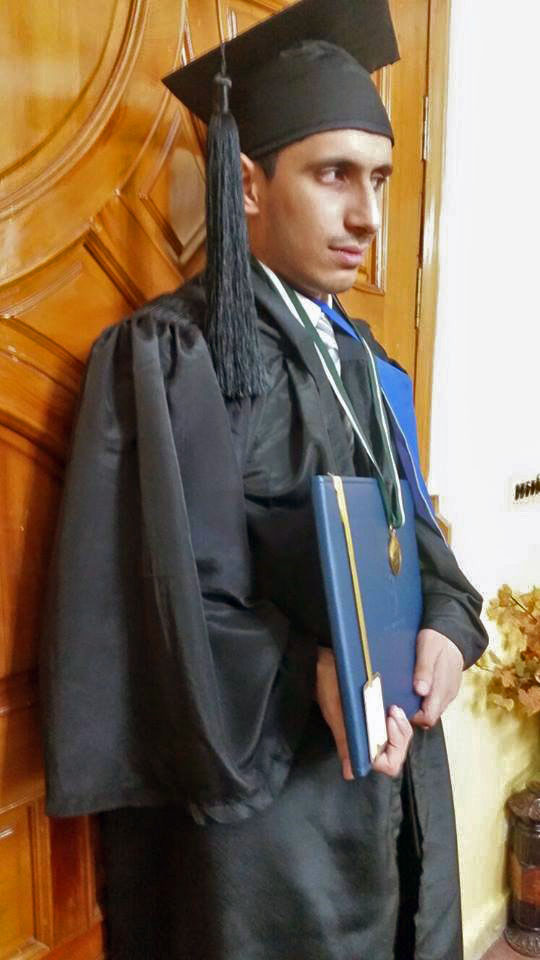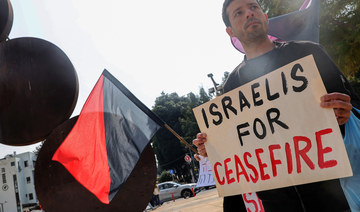ISLAMABAD: A visually challenged young Pakistani, Yousuf Salim, was all set to become the first visually impaired judge in the country’s history as he received his recommendation for appointment of civil judge last Saturday.
The dream of the 25-year-old Punjab University gold medalist to become a judge is about to be fulfilled as the differently-abled man vows to deal with all challenges of life with determination and courage.
“Honourable examination committee for recruitment of district judiciary and Lahore High Court Establishment has recommended you for appointment as civil judge-cum-magistrate,” said the recommendation letter that Salim received and proudly shared with his friends and family members.
“I always wanted to become a judge and thank God my dream is finally coming true,” he told Arab News in an interview, adding that some formalities may take two to three weeks before he assumes the office.
Salim, a resident of Lahore, had topped the written judiciary examination among 6,500 candidates and he was among 21 candidates who qualified for the job interview, but was never selected because of his visual impairment.

Yousaf Saleem, a visually-impaired young Pakistani, is all set to become country’s first-ever civil judge and vows to serve the society despite all the physical and societal challenges. (AN photo)
Chief Justice of Pakistan Justice Mian Saqib Nisar took notice of the issue after it was highlighted in local media and directed the chief justice of Lahore High Court to review the case. Nisar remarked that a person could be a judge even if he is visually impaired, provided he meets all other criteria.
“I hope and pray that my appointment as a civil judge will serve as an inspiration for all differently abled persons in Pakistan and they will always do their best to achieve their goals,” he said while thanking the chief justice.
He said he had faced a lot of challenges in life, especially during his studies, but he never gave up. “Challenges and difficulties in fact always prove as a source of motivation for me,” he said, adding that being visually impaired, he has to put in extra effort to prove himself, and this has made him a “strong man.”
Salim is son of a chartered accountant and brother of four sisters, two of whom are also visually impaired. None of them let physical disability get in their way and proved themselves in different fields of life through commitment and hard work.
One of his visually challenged sisters, Saima Salim, joined the civil service of Pakistan in 2007 and has served in Pakistan’s United Nations missions in Geneva and New York. She is now posted in the Prime Minister Secretariat as deputy secretary.
His other visually impaired sister teaches at a university in Lahore and is also doing her PhD.
Salim said society needs to overcome misconceptions about the differently abled persons and help them become useful citizens of Pakistan instead of making them an outcast.
“I have come here through my struggle and hard work, and I’m sure I’ll go places,” said Salim, who is determined to serve society despite all the physical and societal challenges.




















